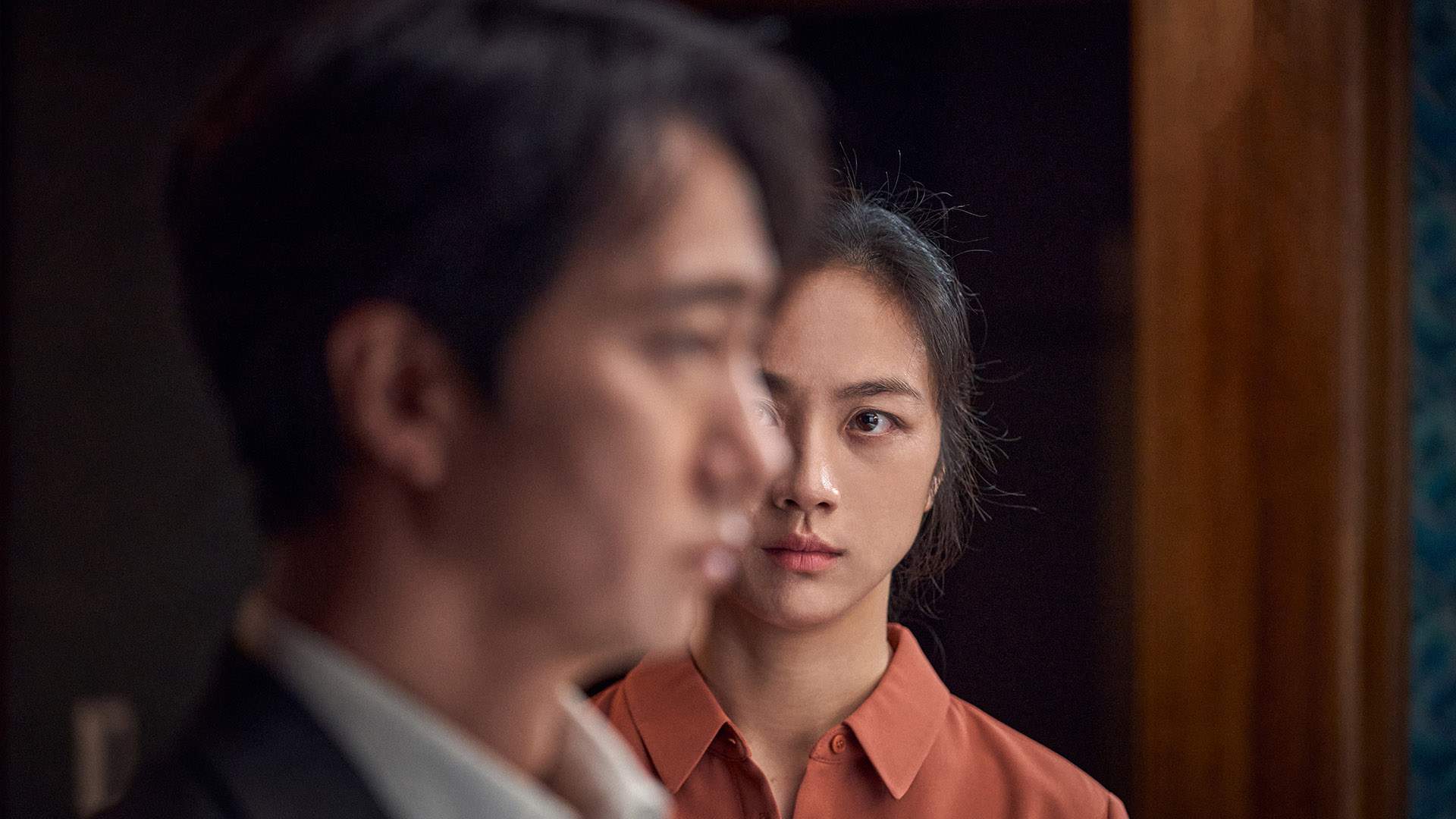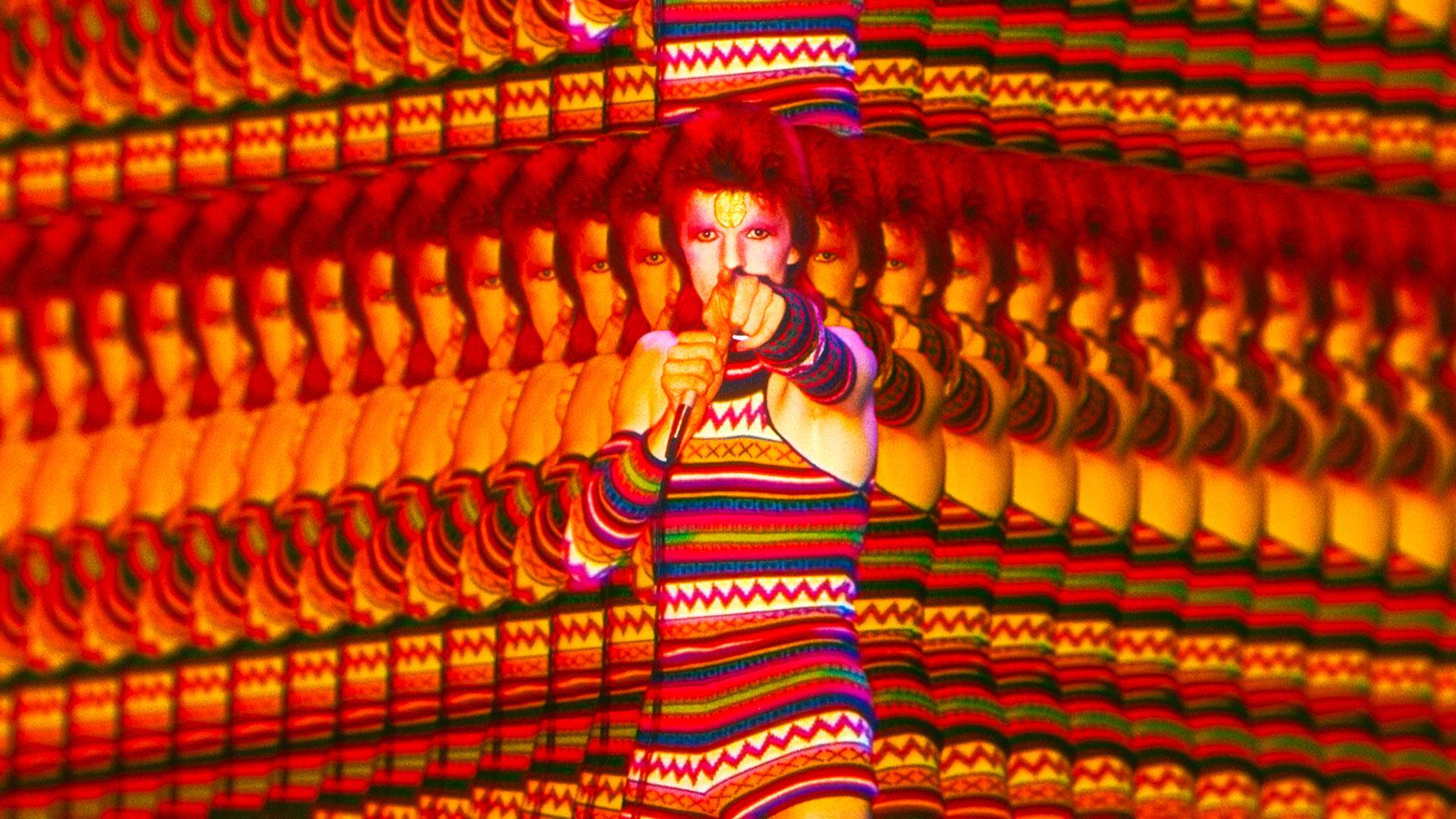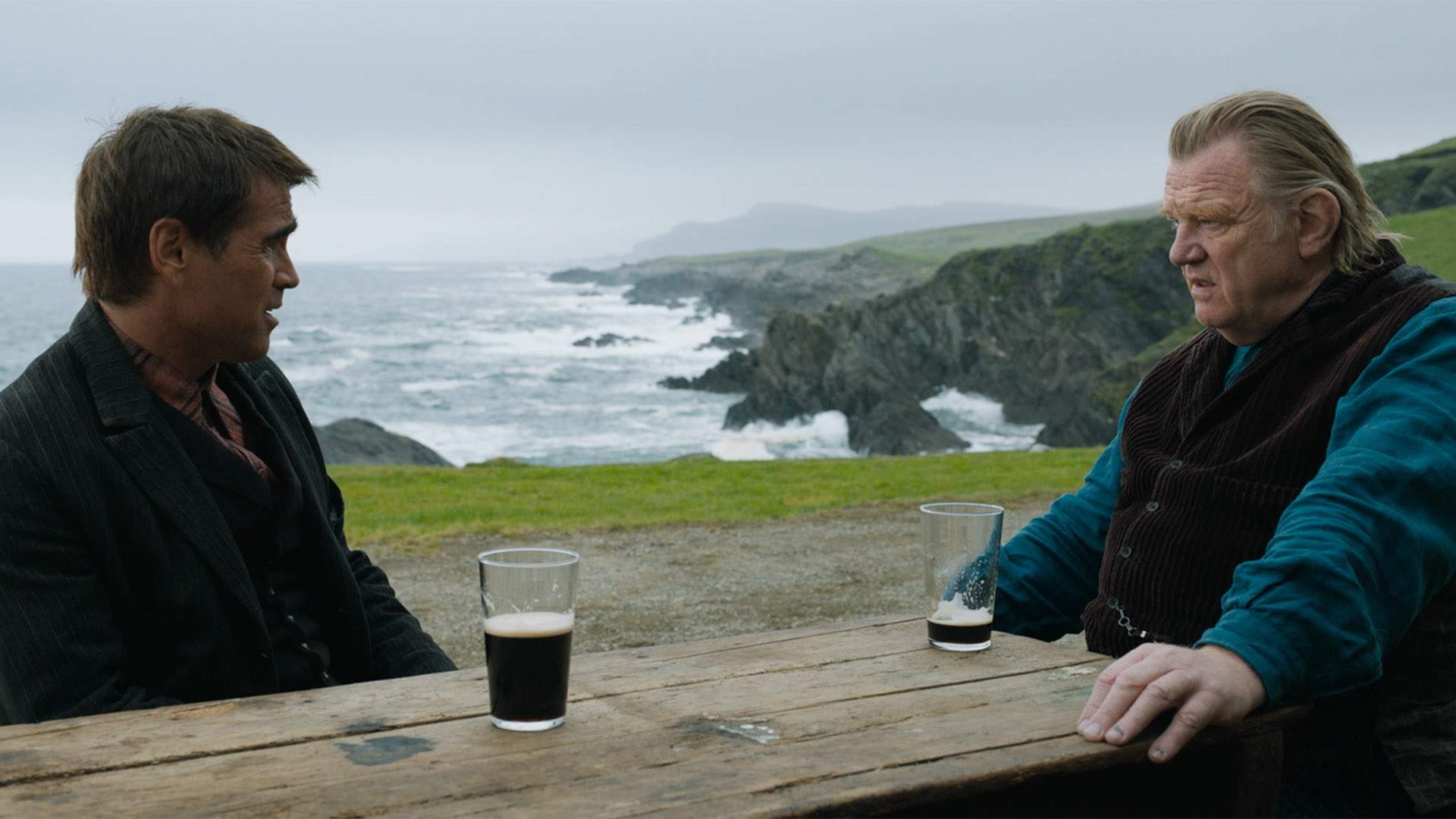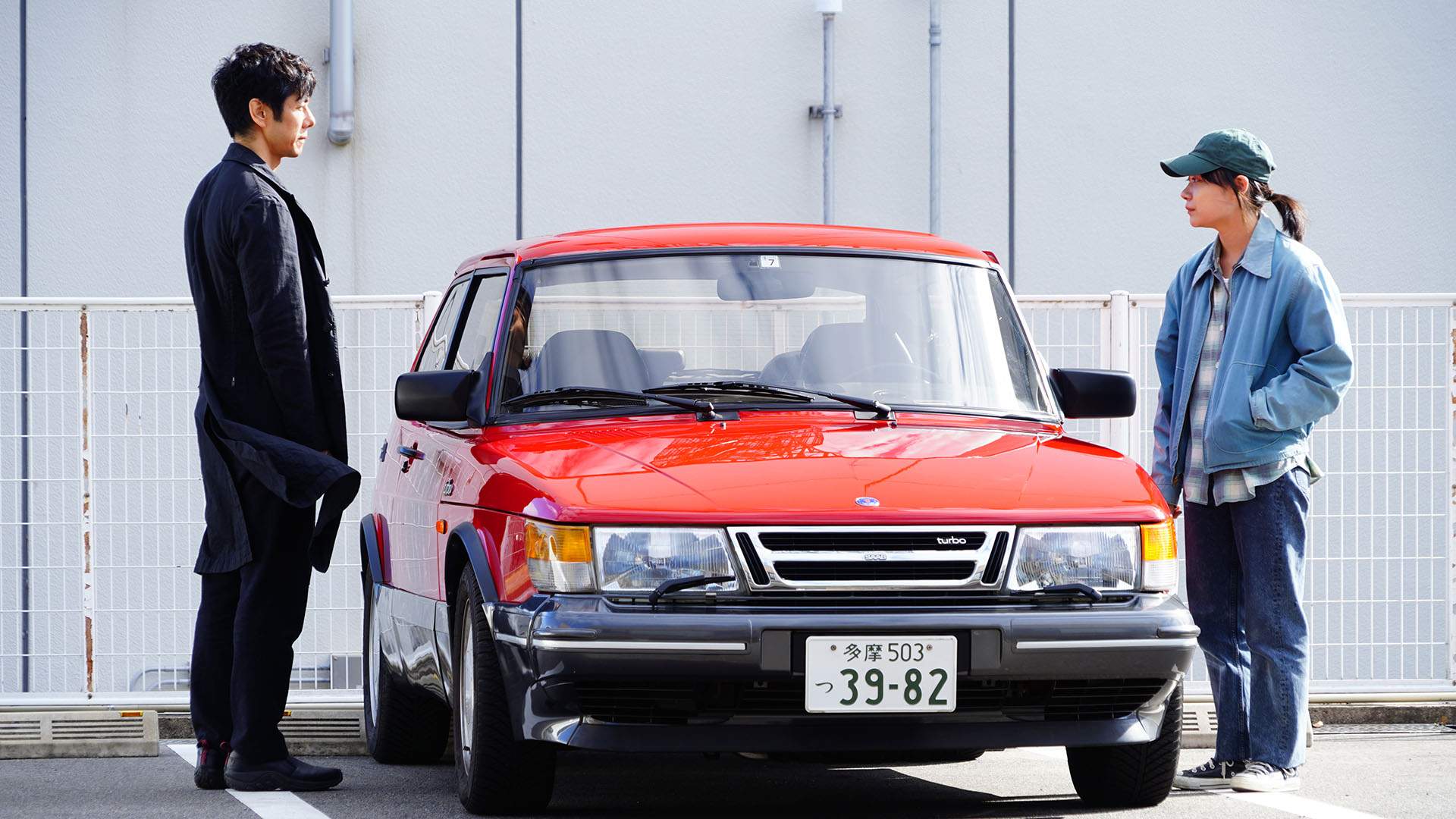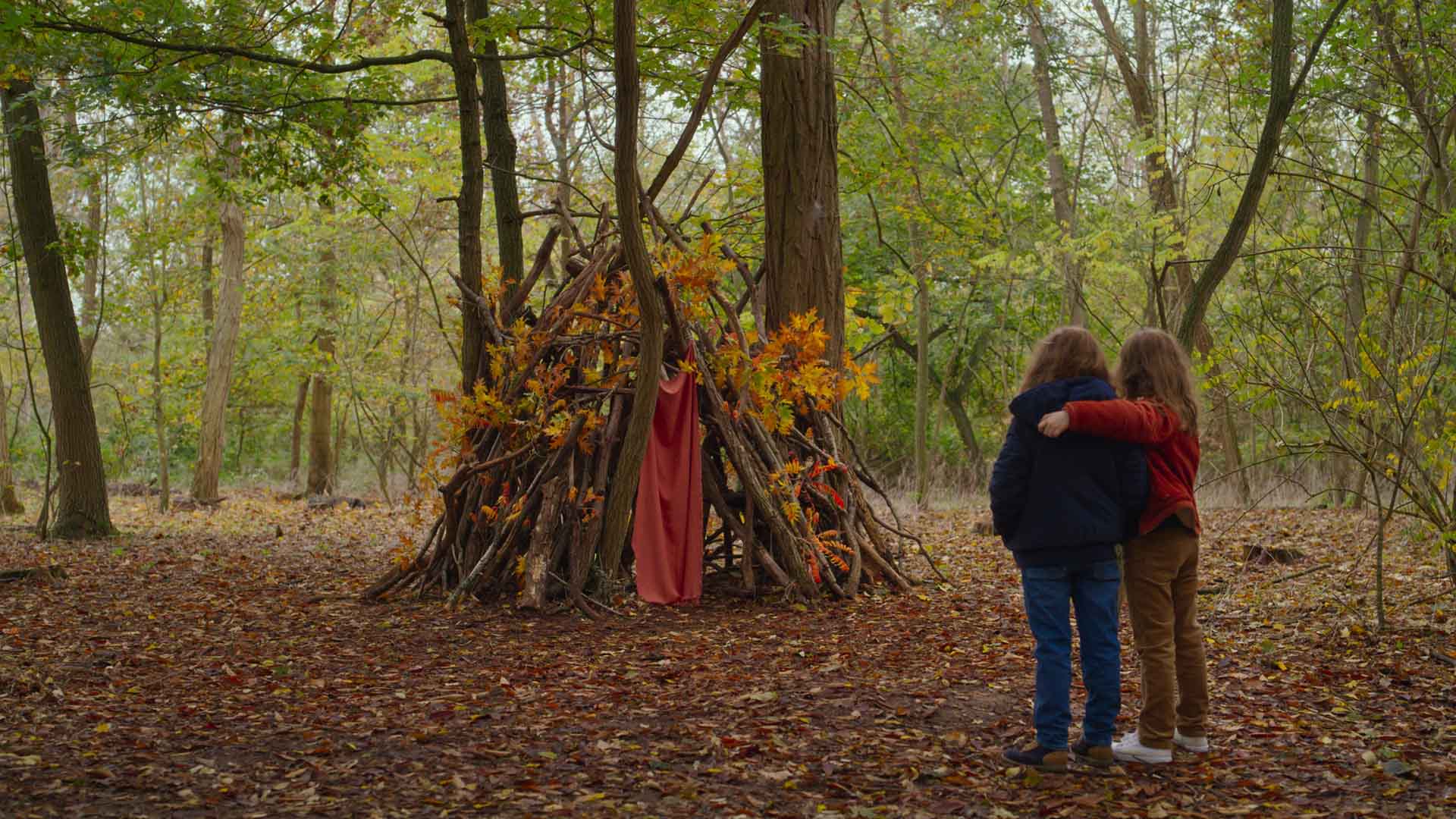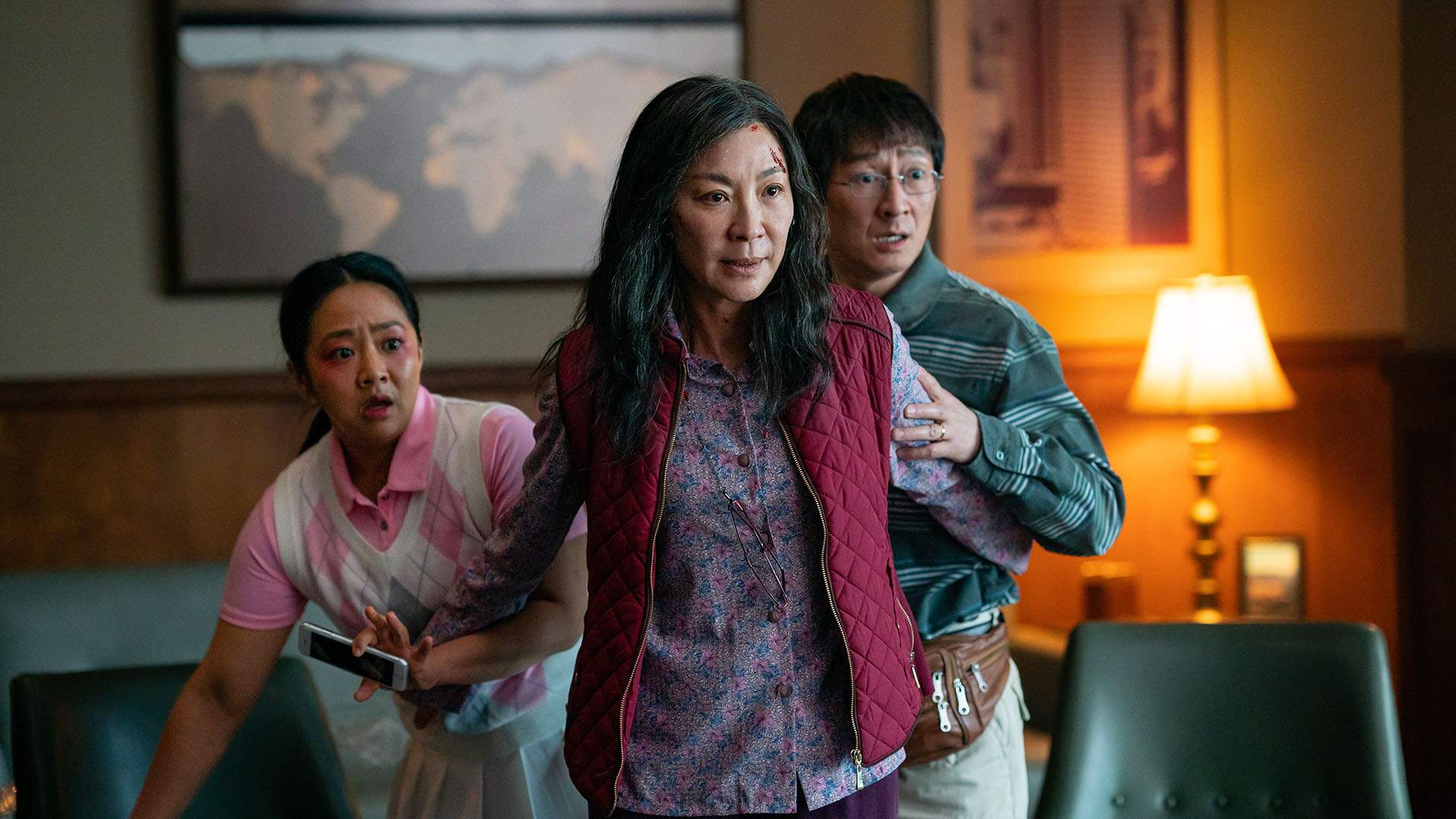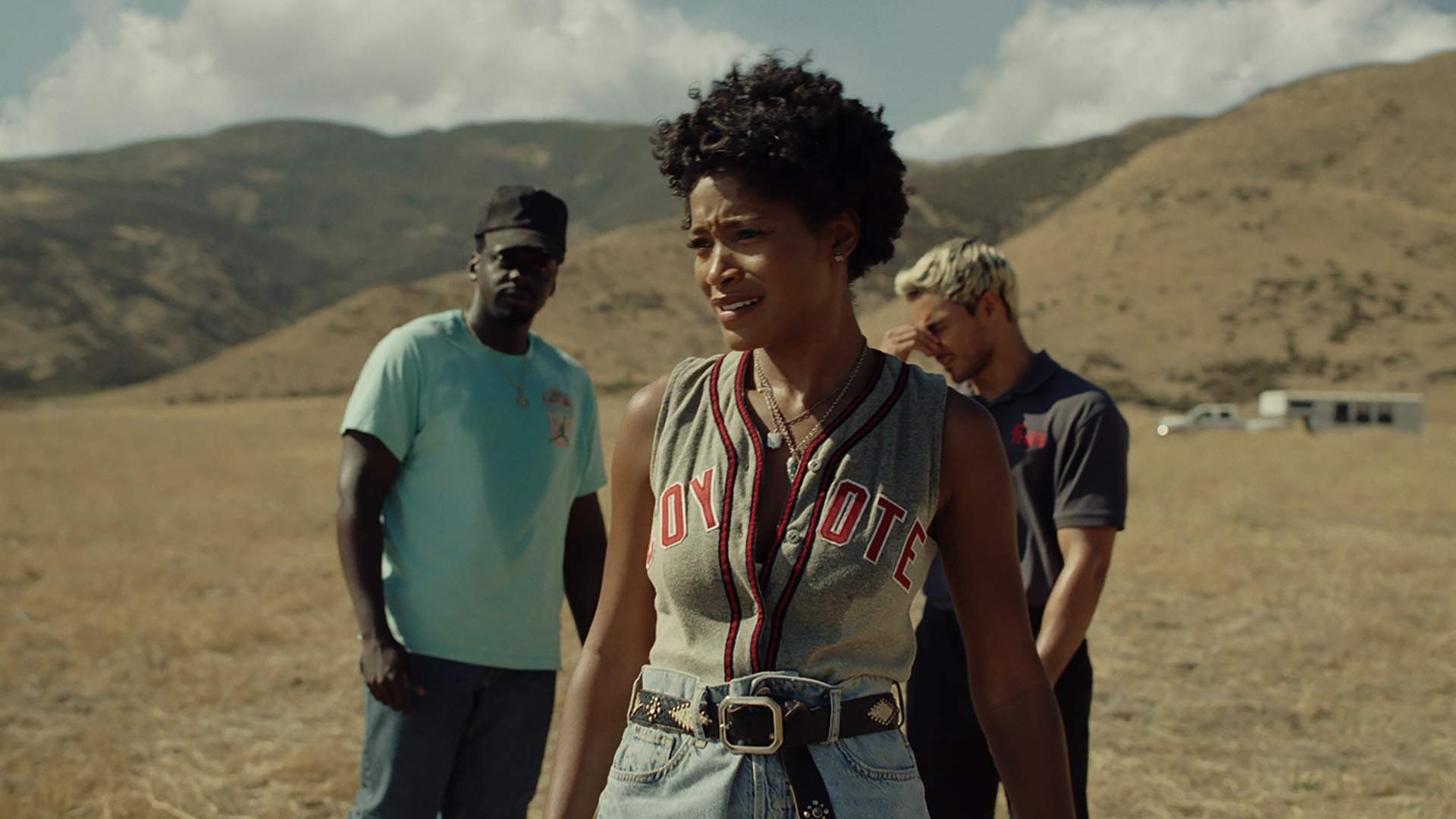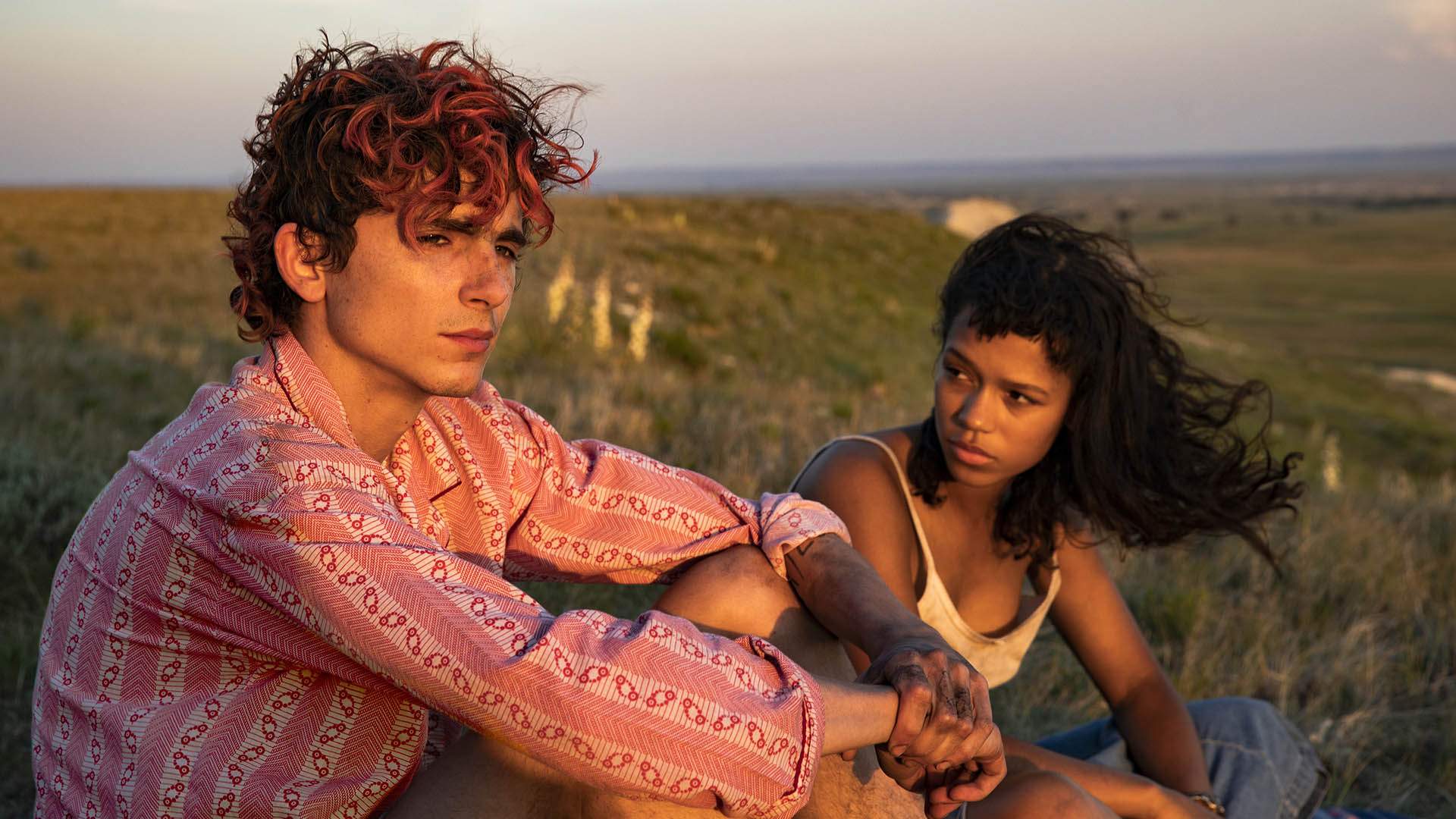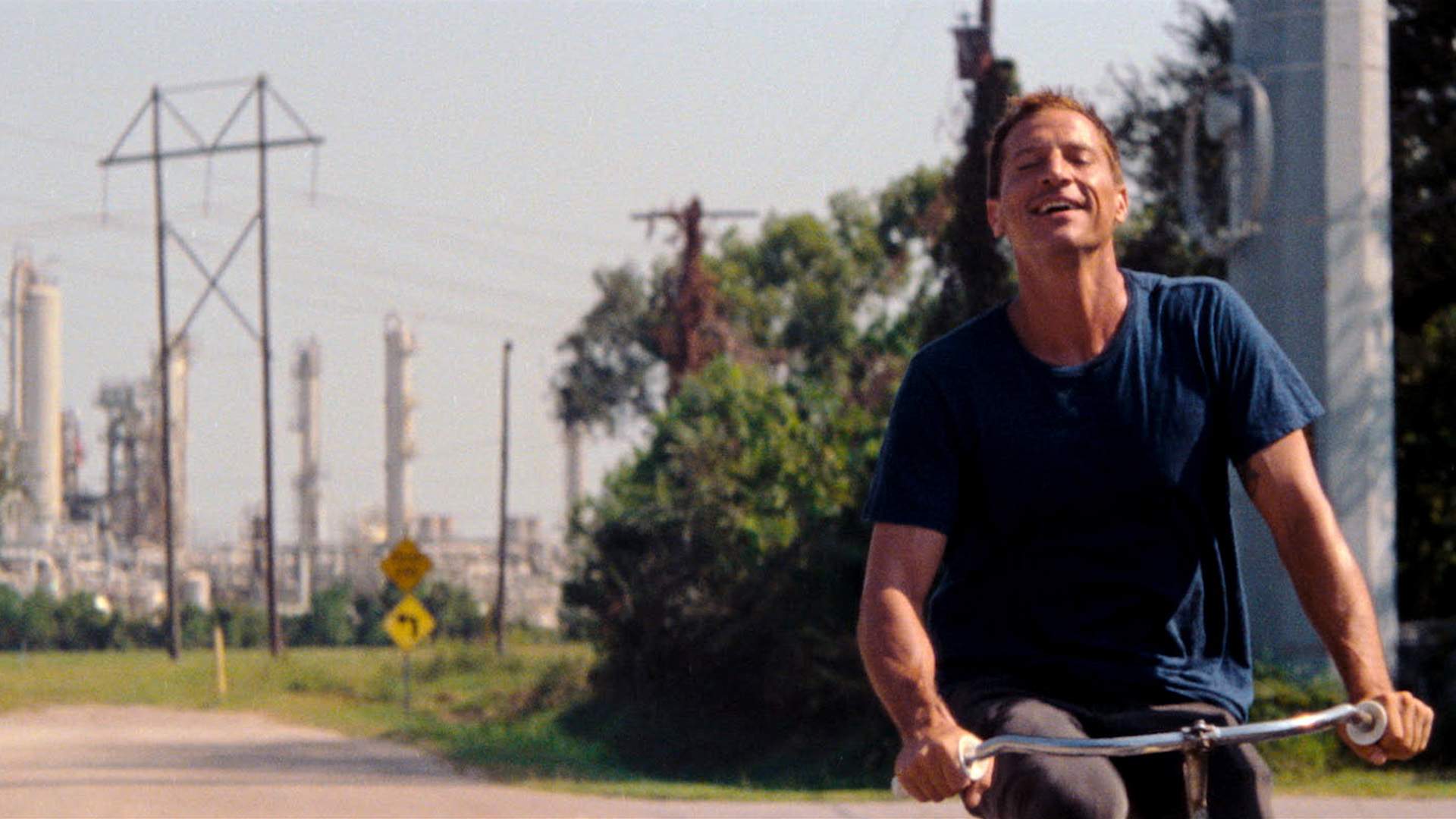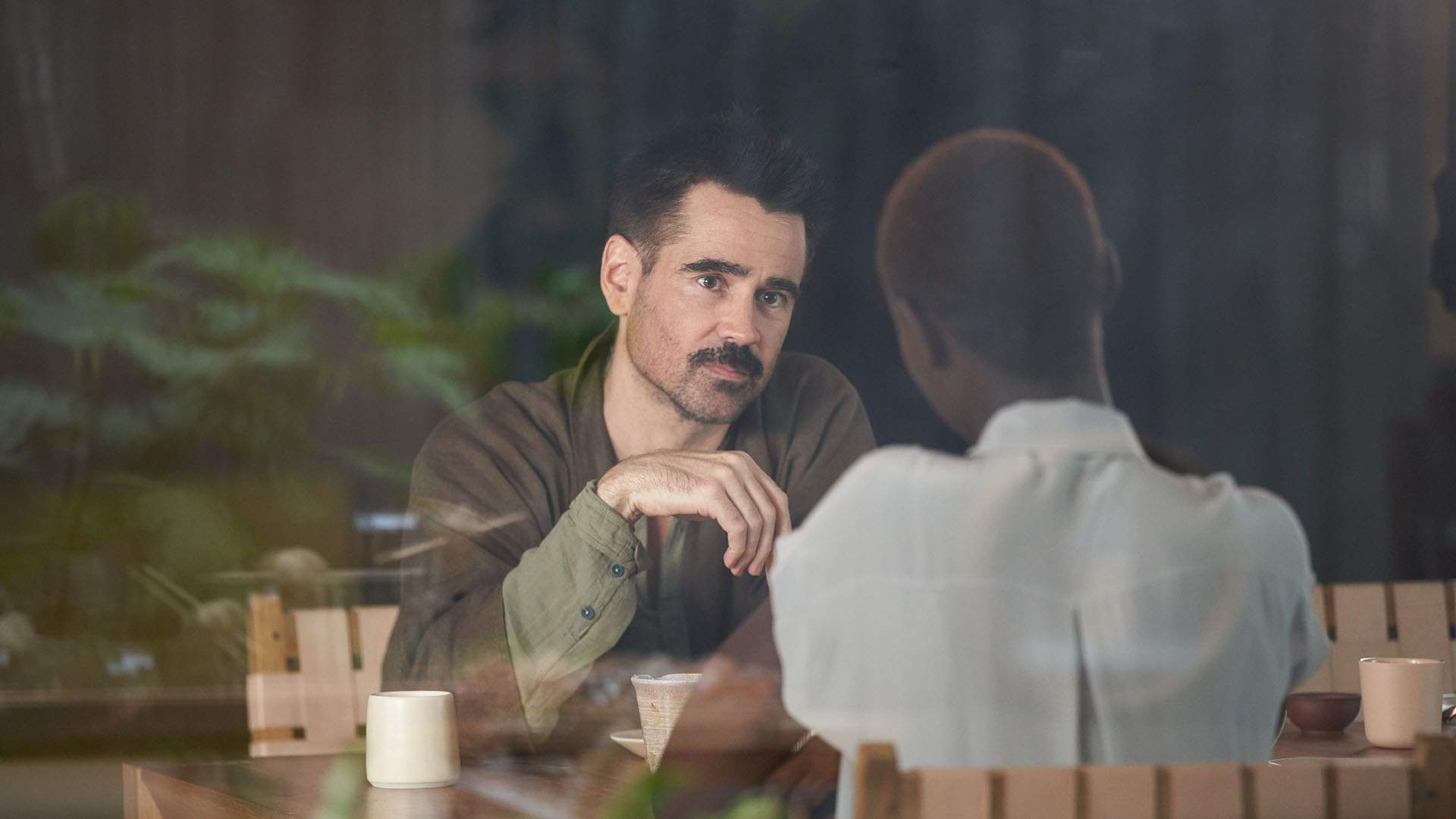The 15 Best Films of 2022
From mesmerising South Korean thrillers to spectacular music documentaries — and including multiverse madness, volcano love stories and a cannibalistic Timothée Chalamet, too — here's the cream of 2022's cinematic crop.
Once you see the wallpaper in Decision to Leave, it's impossible to forget it. That patterned surface, nodding to both the mountains and the sea, isn't why Park Chan-wook's film is the best of 2022 — except that it is in a way. The level of detail shown, how perfectly it encapsulates and expresses almost everything about the immaculate and evocative thriller, the stunning shots that rove over it: this is masterful, powerful, sensual and sensational cinema. This is filmmaking at its greatest, too.
As every year does — sans worldwide shutdowns and lockdowns, of course — 2022 saw hundreds of movies make their way to cinemas Down Under. Some were downright terrible. Oh-so-many were average. But more than a few were truly exceptional, like Decision to Leave.
This year's cream of the cinematic crop spanned everything from spectacular music documentaries through to multiverse madness, and included volcano love stories and a cannibalistic Timothée Chalamet as well. Formidable talents doing what they do best, beloved veterans getting astonishing showcase roles, the best action-musical of this and many other years, not one but two ace Colin Farrell flicks: they're all included as well. Here's our overview of the year's silver-screen wonders — aka 2022's 15 best movies.

DECISION TO LEAVE
When it's claimed that Decision to Leave's Detective Hae-joon (Park Hae-il, Heaven: To the Land of Happiness) needs "murder and violence in order to be happy", it's easy to wonder if that statement similarly applies to Park Chan-wook, this stunning South Korean thriller's filmmaker. The director of Oldboy, Thirst, Stoker and The Handmaiden doesn't, surely. Still, his exceptional body of on-screen work glows when either fills its frames — which, in a career that also spans Joint Security Area, Sympathy for Mr Vengeance, Lady Vengeance and English-language TV miniseries The Little Drummer Girl, among other titles, is often. To be more accurate, perhaps Park needs to survey the grey areas that loiter around death and brutality, and surround love, lust, loss, and all matters of the brain, body and heart that bind humans together, to find cinematic fulfilment. Certainly, audiences should be glad if/that he does. In Decision to Leave, exploring such obsessions, and the entire notions of longing and obsession, brings a staggering, sinuously layered and seductively gorgeous movie to fruition — a film to obsess over if ever there was one.
In this year's deserved Cannes Film Festival Best Director-winner, reserved insomniac Hae-joon is fixated from the outset, too: with his police job in Busan, where he works Monday–Friday before returning to Ipo on weekends to his wife (Lee Jung-hyun, Peninsula). That all-consuming focus sees his weekday walls plastered with grim photos from cases, and haunts the time he's meant to be spending — and having sex — with said spouse. Nonetheless, the latest dead body thrust his way isn't supposed to amplify his obsession. A businessman and experienced climber is found at the base of a mountain, and to most other cops the answer would be simple. It is to his offsider Soo-wan (Go Kyung-Pyo, Private Lives), but Hae-joon's interest is piqued when the deceased's enigmatic Chinese widow, the cool, calm but also bruised and scratched Seo-rae (Tang Wei, The Whistleblower), is brought in for questioning amid apologising for her imperfect Korean-language skills.
Read our full review.

MOONAGE DAYDREAM
Ground control to major masterpiece: Moonage Daydream, Brett Morgen's kaleidoscopic collage-style documentary about the one and only David Bowie, really makes the grade. Its protein pills? A dazzling dream of archival materials, each piece as essential and energising as the next, woven into an electrifying experience that eclipses the standard music doco format. Its helmet? The soothing-yet-mischievous tones of Ziggy Stardust/Aladdin Sane/The Thin White Duke/Jareth the Goblin King himself, the only protective presence a film about Bowie could and should ever need and want. The songs that bop through viewers heads? An immense playlist covering the obvious — early hit 'Space Oddity', the hooky glam-rock titular track, Berlin-penned anthem 'Heroes', the seductive 80s sounds of 'Let's Dance' and the Pet Shop Boys-remixed 90s industrial gem 'Hallo Spaceboy', to name a few — as well as deeper cuts. The end result? Floating through a cinematic reverie in a most spectacular way.
When Bowie came to fame in the 60s, then kept reinventing himself from the 70s until his gone-too-soon death in 2016, the stars did look very different — he did, constantly. How do you capture that persistent shapeshifting, gender-bending, personal and creative experimentation, and all-round boundary-pushing in a single feature? How do you distill a chameleonic icon and musical pioneer into any one piece of art, even a movie that cherishes each of its 135 minutes? In the first film officially sanctioned by Bowie's family and estate, Morgen knows what everyone that's fallen under the legend's spell knows: that the man born David Jones, who would've been 75 when this doco hit screens if he was still alive, can, must and always has spoken for himself. The task, then, is the same as the director had with the also-excellent Cobain: Montage of Heck and Jane Goodall-focused Jane: getting to the essence of his subject and conveying what made him such a wonder by using the figure himself as a template.
Read our full review.

THE BANSHEES OF INISHERIN
In The Banshees of Inisherin, the rolling hills and clifftop fields look like they could stretch on forever, even on a fictional small island perched off the Irish mainland. For years, conversation between Padraic Súilleabháin (Colin Farrell, After Yang) and Colm Doherty (Brendan Gleeson, The Tragedy of Macbeth) has been similarly sprawling — and leisurely, too — especially during the pair's daily sojourn to the village pub for chats over pints. But when the latter calls time on their camaraderie suddenly, his demeanour turns brusque and his explanation, only given after much pestering, is curt. Uttered beneath a stern, no-nonsense stare by Gleeson to his In Bruges co-star Farrell, both reuniting with that darkly comic gem's writer/director Martin McDonagh for another black, contemplative and cracking comedy, Colm is as blunt as can be: "I just don't like you no more."
In the elder character's defence, he wanted to ghost his pal without hurtful words. Making an Irish exit from a lifelong friendship is a wee bit difficult on a tiny isle, though, as Colm quickly realises. It's even trickier when the mate he's trying to put behind him is understandably upset and confused, there's been no signs of feud or fray beforehand, and anything beyond the norm echoes through the town faster than a folk ballad. So springs McDonagh's smallest-scale and tightest feature since initially leaping from the stage to the screen, and a wonderful companion piece to that first effort. Following the hitman-focused In Bruges, he's gone broader with Seven Psychopaths, then guided Frances McDormand and Sam Rockwell to Oscars with Three Billboards Outside Ebbing, Missouri, but he's at his best when his lens is trained at Farrell and Gleeson as they bicker in close confines.
Read our full review.

DRIVE MY CAR
Inspired by Haruki Murakami's short story of the same name, Drive My Car's setup couldn't be simpler. Still recovering from a personal tragedy, actor and director Yusuke Kafuku (Hidetoshi Nishijima, Silent Tokyo) agrees to helm a stage version of Chekhov's Uncle Vanya in Hiroshima — but the company behind it insists on giving him a chauffeur for the duration of his stay. He declines, yet they contend that it's mandatory for insurance and liability reasons, so Misaki (Toko Miura, Spaghetti Code Love) becomes a regular part of his working stint in the city. Friendship springs, slowly and gradually, but Murakami's name is one of the first signs that this won't follow a standard road. The other: Japanese filmmaker Ryûsuke Hamaguchi, who makes layered, thoughtful and probing reflections upon connection, as seen in his other efforts Happy Hour, Asako I & II and Wheel of Fortune and Fantasy.
Drive My Car doesn't hurry to its narrative destination, clocking in at a minute shy of three hours, but it's a patient, engrossing and rewarding trip. It's a gorgeously shot and affectingly performed one, too, whether taking to the road, spending time with its central pair, or chronicling Yusuke's involving auditions and rehearsals. Another thing that Hamaguchi does disarmingly well: ponder possibilities and acceptance, two notions that echo through both Yusuke and Misaki's tales, and resonate with that always-winning combination of specificity and universality. Drive My Car is intimate and detailed about every element of its on-screen voyage and its character studies, and also a road map to soulful, relatable truths.
Read our full review.

PETITE MAMAN
Forget the "find someone who looks at you like…" meme. That's great advice in general, but it's mandatory if you've ever seen a film by Céline Sciamma. No one peers at on-screen characters with as much affection, attention, emotion and empathy as the French director, with her talent for truly seeing into hearts and minds shining again in Petite Maman. In Sciamma's latest delicate and exquisite masterpiece after Tomboy, Girlhood and Portrait of a Lady on Fire, she follows eight-year-old Nelly (debutant Joséphine Sanz) on a trip to her mother's (Nina Meurisse, Camille) childhood home. Nelly's grandmother (Margot Abascal, The Sower) has just died, and the house needs packing up. While her parents work, the curious child roves around the surrounding woods — and discovers Marion (fellow newcomer Gabrielle Sanz), who could be her twin.
Sciamma is exceptionally talented at many things, creating richly detailed and intimately textured cinematic worlds high among them. She doesn't build franchises or big fantasy realms, but surveys faces, spaces, thoughts and feelings — exploring them like the entire universes they are. That approach pulsates through every frame of Petite Maman like a heartbeat. The film itself resembles a gentle but soul-replenishing breeze in its rustic look and serene pacing, but it thrums with emotion and insight at every moment. It's a modern-day fairy tale, too, complete with a glorious twist, with this radiant, moving, smart and perceptive movie musing deeply on mothers, daughters and the ties that bind.
Read our full review.

EVERYTHING EVERYWHERE ALL AT ONCE
Imagine living in a universe where Michelle Yeoh isn't the wuxia superstar she is. No, no one should want to dwell in that reality. Now, envisage a world where everyone has hot dogs for fingers, including the Crouching Tiger, Hidden Dragon icon. Next, picture another where Ratatouille is real, but with raccoons. Then, conjure up a sparse realm where life only exists in sentient rocks. An alternative to this onslaught of pondering: watching Everything Everywhere All At Once, which throws all of the above at the screen and a helluva lot more. Yes, its title is marvellously appropriate. Written and directed by the Daniels, aka Swiss Army Man's Daniel Kwan and Daniel Scheinert, this multiverse-hopping wonder is a funhouse of a film that just keeps spinning through wild and wacky ideas. Instead of asking "what if Daniel Radcliffe was a farting corpse that could be used as a jet ski?" as their also-surreal debut flick did, the pair now muses on Yeoh, her place in the universe, and everyone else's along with her.
Although Yeoh doesn't play herself in Everything Everywhere All At Once, she is seen as herself; keep an eye out for red-carpet footage from her Crazy Rich Asians days. Such glitz and glamour isn't the norm for middle-aged Chinese American woman Evelyn Wang, her laundromat-owning character in the movie's main timeline, but it might've been if life had turned out differently. That's such a familiar train of thought — a resigned sigh we've all emitted, even if only when alone — and the Daniels use it as their foundation. Their film starts with Evelyn, her husband Waymond (Ke Huy Quan, Indiana Jones and the Temple of Doom's Short Round and The Goonies' Data) and a hectic time. Evelyn's dad (James Hong, Turning Red) is visiting from China, the Wangs' daughter Joy (Stephanie Hsu, Shang-Chi and the Legend of the Ten Rings) brings her girlfriend Becky (Tallie Medel, The Carnivores) home, and IRS inspector Deirdre Beaubeirdra (Jamie Lee Curtis, Halloween Ends) is conducting a punishing audit. Then Evelyn learns she's the only one who can save, well, everything, everywhere and everyone.
Read our full review.

NOPE
Kudos to Jordan Peele for giving his third feature as a writer/director a haters-gonna-hate-hate-hate name: for anyone unimpressed with Nope, the response is right there. Kudos, too, to the Get Out and Us filmmaker for making his third bold, intelligent and supremely entertaining horror movie in a row — a reach-for-the-skies masterpiece that's ambitious and eerie, imaginative and expertly crafted, as savvy about cinema as it is about spectacle, and inspires the exact opposite term to its moniker. Reteaming with Peele after nabbing an Oscar nomination for Get Out, Daniel Kaluuya utters the titular word more than once in Nope. Exclaiming "yep" in your head each time he does is an instant reaction. Everything about the film evokes that same thrilled endorsement, but it comes particularly easily whenever Kaluuya's character surveys the wild and weird events around him. We say yay to his nays because we know we'd respond the same way if confronted by even half the chaos that Peele whooshes through the movie.
As played with near-silent weariness by the always-excellent Judas and the Black Messiah Oscar-winner, Haywood's Hollywood Horses trainer OJ doesn't just dismiss the strange thing in the heavens, though. He can't, even if he doesn't realise the full extent of what's happening when his father (Keith David, Love Life) suddenly slumps on his steed on an otherwise ordinary day. Six months later, OJ and his sister Emerald (Keke Palmer, Lightyear) are trying to keep the family business, which dates back to the 1800s, running. The presence lurking above the Haywoods' Agua Dulce property soon requires just as much attention, though. Just as Get Out saw Peele reinterrogate the possession movie and Us did the same with doppelgängers, Nope goes all in on flying saucers. So, Emerald wants the kind of proof that only video footage can offer. She wants her "Oprah shot", as well as a hefty payday. Soon, the brother-sister duo are buying new surveillance equipment — which piques the interest of UFO-obsessed electronics salesman Angel Torres (Brandon Perea, The OA) — and also enlisting renowned cinematographer Antlers Holst (Michael Wincott, Veni Vidi Vici) to capture the lucrative image.
Read our full review.

BONES AND ALL
To be a character in a Luca Guadagnino film is to be ravenous. The Italian director does have a self-described Desire trilogy — I Am Love, A Bigger Splash and Call Me By Your Name — on his resume, after all. In those movies and more, he spins sensual stories about hungry hearts, minds and eyes, all while feeding his audience's very same body parts. He tells tales of protagonists bubbling with lust and yearning, craving love and acceptance, and trying to devour this fleeting thing called life while they're living it. Guadagnino hones in on the willingness to surrender to that rumbling and pining, whether pursuing a swooning, sweeping, summery romance in the first feature that put Timothée Chalamet in front of his camera, or losing oneself to twitchy, witchy dance in his Suspiria remake. Never before has he taken having an insatiable appetite to its most literal and unnerving extreme, however, but aching cannibal love story Bones and All is pure Guadagnino.
Peaches filled with longing's sticky remnants are so 2017 for Guadagnino, and for now-Little Women, Don't Look Up and Dune star Chalamet. Biting into voracious romances will never get old, though. Five years after Call Me By Your Name earned them both Oscar nominations — the filmmaker for Best Picture, his lead for Best Actor — they reteam for a movie that traverses the American midwest rather than northern Italy, swaps erotic fruit for human flesh and comes loaded with an eerie undercurrent, but also dwells in similar territory. It's still the 80s, and both hope and melancholy still drift in the air. The phenomenal Taylor Russell (Lost in Space) drives the feature as Maren, an 18-year-old with an urge to snack on people that makes her an unpopular slumber-party guest. When she meets Chalamet's Lee, a fellow 'eater', Bones and All becomes another sublime exploration of love's all-consuming feelings — and every bit as exquisite as Guadagnino and Chalamet's last stunning collaboration.
Read our full review.

RED ROCKET
It might sound crazy, but it ain't no lie: Red Rocket's *NSYNC needle drops, the cost of which likely almost eclipsed the rest of the film's budget, provide a sensational mix of movie music moments in an all-round sensational picture. A portrait of an ex-porn star's knotty homecoming to the oil-and-gas hub that is Texas City, the feature only actually includes one song by the Justin Timberlake-fronted late-90s/early-00s boyband, but it makes the most of it. That tune is 'Bye Bye Bye', and it's a doozy. With its instantly recognisable blend of synth and violins, it first kicks in as the film itself does, and as the bruised face of Mikey Saber (Simon Rex, Scary Movie 3, 4 and 5) peers out of a bus window en route from Los Angeles. Its lyrics — "I'm doing this tonight, you're probably gonna start a fight, I know this can't be right" — couldn't fit the situation better. The infectiously catchy vibe couldn't be more perfect as well, and nor could the contrast that all those upbeat sounds have always had with the track's words.
As he demonstrates with every film, Red Rocket writer/director/editor Sean Baker is one of the best and shrewdest filmmakers working today — one of the most perceptive helmers taking slice-of-life looks at American existence on the margins, too. His latest movie joins Starlet, Tangerine and The Florida Project on a resume that just keeps impressing, but there's an edge here born of open recognition that Mikey is no one's hero. He's a narcissist, sociopath and self-aggrandiser who knows how to talk his way into anything, claim success from anyone else's wins and blame the world for all his own woes. He's someone that everyone in his orbit can't take no more and wants to see out that door, as if *NSYNC's now-22-year-old lyrics were specifically penned about him. He's also a charismatic charmer who draws people in like a whirlwind. He's the beat and the words of 'Bye Bye Bye' come to life, in fact, even if the song wasn't originally in Red Rocket's script.
Read our full review.

AFTER YANG
What flickers in a robot's circuitry in its idle moments has fascinated the world for decades, famously so in Do Androids Dream of Electric Sheep?, Blade Runner and Blade Runner 2049. In writer/director/editor Kogonada's (TV series Pachinko) After Yang, one machine appears to long for everything humans do. The titular Yang (Justin H Min, The Umbrella Academy) was bought to give Kyra (Jodie Turner-Smith, Queen & Slim) and Jake's (Colin Farrell, The Batman) adopted Chinese daughter Mika (Malea Emma Tjandrawidjaja, iCarly) a technosapien brother, babysitter, companion and purveyor of "fun facts" about her heritage. He dotes amid his duties, perennially calm and loving, and clearly an essential part of the family. What concerns his wiring beyond his assigned tasks doesn't interest anyone, though, until he stops operating. Mika is distressed, and Kyra and Jake are merely inconvenienced initially, but the latter pledges to figure out how to fix Yang — which is where his desires factor in.
When a feature so easily recalls other films and television shows, and so emphatically — Ex Machina and Black Mirror also come to mind here — it isn't typically a positive sign. That isn't the case with After Yang. Adapting Alexander Weinstein's short story Saying Goodbye to Yang, Kogonada crafts a movie that resembles a dream for the overwhelming bulk of its running time — it's softly shot like one, and tightly to focus on interiors rather than backgrounds — and that makes it feel like a happily slumbering brain filtering through and reinterpreting its wide array of influences. Another picture that leaves an imprint: Kogonada's own Columbus, his 2017 wonder that also featured Haley Lu Richardson (The White Lotus), who pops up here as a friend of Yang's that Jake, Kyra and Mika know nothing about. It isn't the shared casting that lingers, but the look and mood and texture, plus the idea that what we see, what we choose to revel in aesthetically and what makes us tick mentally are intertwined; yes, even for androids.
Read our full review.
HAPPENING
It's hard to pick which is more horrifying in Happening: the graphic scenes where 23-year-old literature student Anne Duchesne (Anamaria Vartolomei, How to Be a Good Wife) takes the only steps she can to try to regain control of her life, or the times she's repeatedly told by others, typically men, to accept a fate that only ever awaits her gender. Both hit like a punch, by design. Both are wrenching, heart and gut alike, and neither are surprising for a second. Also leaving a mark: that few care that Anne's future is now threatened in this 2021 Venice Film Festival Golden Lion-winner, because that's simply a consequence of having sex for women in France in 1963, the movie's setting. There's another truth that lingers over this adaptation of author Annie Ernaux's 2001 memoir of the same name, which uses her own experiences at the same age, time and in the same situation: that in parts of the world where pro-life perspectives are entrenched in law or regaining prominence, Happening's scenario isn't a relic of the past.
Late in the movie, Anne describes her circumstances as "that illness that turns French women into housewives". It's a blunt turn of phrase, but it's accurate. It also speaks to how writer/director Audrey Diwan (Losing It) and co-scribe Marcia Romano (Bye Bye Morons) approach the film with the clearest of eyes, declining to indulge the idea that forcing unwanted motherhood upon young women is a gift or simply a duty, and likewise refusing to flinch from showing the reality when the personal freedom to choose is stripped away. This is a feature made with the fullest of hearts, too, compassion evident in every boxed-in Academy ratio frame that rarely leaves Anne's face. It spies the appalling options before her, and sees the society that's okay with stealing her choices. And, it stares deeply at both the pain and determination that've understandably taken up residence in Anne's gaze.
Read our full review.
THE STRANGER
No emotion or sensation ripples through two or more people in the exact same way, and never will. The Stranger has much to convey, but it expresses that truth with piercing precision. The crime-thriller is the sophomore feature from actor-turned-filmmaker Thomas M Wright — following 2018's stunning Adam Cullen biopic Acute Misfortune, another movie that shook everyone who watched it and proved hard to shake — and it's as deep, disquieting and resonant a dance with intensity as its genre can deliver. To look into Joel Edgerton's (Thirteen Lives) eyes as Mark, an undercover cop with a traumatic but pivotal assignment, is to spy torment and duty colliding. To peer at Sean Harris (Spencer) as the slippery Henry Teague is to see a cold, chilling and complex brand of shiftiness. Sitting behind these two performances in screentime but not impact is Jada Alberts' (Mystery Road) efforts as dedicated, determined and drained detective Kate Rylett — and it may be the portrayal that sums up The Stranger best.
Writing as well as directing, Wright has made a film that is indeed dedicated, determined and draining. At every moment, including in sweeping yet shadowy imagery and an on-edge score, those feelings radiate from the screen as they do from Alberts. Sharing the latter's emotional exhaustion comes with the territory; sharing their sense of purpose does as well. In the quest to capture a man who abducted and murdered a child, Rylett can't escape the case's horrors — and, although the specific details aren't used, there's been no evading the reality driving this feature. The Stranger doesn't depict the crime that sparked Kate Kyriacou's non-fiction book The Sting: The Undercover Operation That Caught Daniel Morcombe's Killer, or any violence. It doesn't use the Queensland schoolboy's name, or have actors portray him or his family. This was always going to be an inherently discomforting and distressing movie, though, but it's also an unwaveringly intelligent and impressive examination of trauma.
Read our full review.

CRIMES OF THE FUTURE
It takes a brave filmmaker to see cancer and climate change, and think of art, evolution and eroticism in a possible future. It takes a bold director to have a character proclaim that "surgery is the new sex", too. David Cronenberg has always been that kind of visionary, even before doing all of the above in his sublime latest release — and having the Scanners, Videodrome and The Fly helmer back on his body-horror bent for the first time in more than two decades is exactly the wild and weird dream that cinephiles want it to be. The Canadian auteur makes his first movie at all since 2014's Maps to the Stars, in fact, and this tale of pleasure and pain is as Cronenbergian as anything can be. He borrows Crimes of the Future's title from his second-ever feature dating back 50-plus years, brings all of his corporeal fascinations to the fore, and moulds a viscerally and cerebrally mesmerising film that it feels like he's always been working towards. Long live the new flesh, again. Long live the old Cronenberg as well.
In this portrait of a potential time to come, the human body has undergone two significant changes. Three, perhaps, as glimpsed in a disquieting opening where an eight-year-old called Brecken (debutant Sotiris Siozos) snacks on a plastic bin, and is then murdered by his mother Djuna (Lihi Kornowski, Ballistic). That incident isn't unimportant, but Crimes of the Future has other departures from today's status quo to carve into — and they're equally absorbing. Physical agony has disappeared, creating a trade in "desktop surgery" as performance art. Also, a condition dubbed Accelerated Evolution Syndrome causes some folks, such as artist Saul Tenser (Viggo Mortensen, Thirteen Lives), to grow abnormal organs. These tumours are removed and tattooed in avant-garde shows by his doctor/lover Caprice (Léa Seydoux, No Time to Die), then catalogued by the National Organ Register's Wippit (Don McKellar, reteaming with Cronenberg after eXistenZ) and Timlin (Kristen Stewart, Spencer).
Read our full review.

FIRE OF LOVE
What a delight it would be to trawl through Katia and Maurice Krafft's archives, sift through every video that features the French volcanologists and their work, and witness them doing their highly risky jobs against spectacular surroundings. That's the task that filmmaker Sara Dosa (The Seer and the Unseen) took up to make this superb documentary about the couple's lives — although, as magnificent as this incredibly thoughtful, informative and moving film is, it makes you wonder what a sci-fi flick made from the same footage would look like. There's a particular sequence that cements that idea, set to the also-otherworldly sounds of Air, and featuring the Kraffts walking around against red lava in their futuristic-looking protective silver suits. The entire enchanting score springs from Air's Nicolas Godin, and it couldn't better set the mood; that said, these visuals and this story would prove entrancing if nary a sound was heard, let alone a note or a word.
For newcomers to the Kraffts, their lives make quite the tale — one of two volcano-obsessed souls who instantly felt like they were destined to meet, then dedicated their days afterwards to understanding the natural geological formations. More than that, they were passionate about analysing what they dubbed 'grey volcanos', which produce masses of ash when they erupt, and often a body count. Attempting to educate towns and cities in the vicinity of volcanoes, so that they could react appropriately and in a timely way to avoid casualties, became a key part of their mission. This isn't the only doco about them — in fact, German director Werner Herzog has made his own, called The Fire Within: A Requiem for Katia and Maurice Krafft — but Fire of Love is a gorgeous, sensitive, fascinating and affecting ode to two remarkable people, their love, their passion and their impact. It also benefits from pitch-perfect narration, too, courtesy of actor and Kajillionaire filmmaker Miranda July.
Read our full review.

RRR
The letters in RRR's title are short for Rise Roar Revolt. They could also stand for riveting, rollicking and relentless. They link in with the Indian action movie's three main forces, too — writer/director SS Rajamouli (Baahubali: The Beginning), plus stars NT Rama Rao Jr (Aravinda Sametha Veera Raghava) and Ram Charan (Vinaya Vidheya Rama) — and could describe the sound of some of its standout moments. What noise echoes when a motorcycle is used in a bridge-jumping rescue plot, as aided by a horse and the Indian flag, amid a crashing train? Or when a truck full of wild animals is driven into a decadent British colonialist shindig and its caged menagerie unleashed? What racket resounds when a motorbike figures again, this time tossed around by hand (yes, really) to knock out those imperialists, and then an arrow is kicked through a tree into someone's head? Or, when the movie's two leads fight, shoot, leap over walls and get acrobatic, all while one is sat on the other's shoulders?
RRR isn't subtle. Instead, it's big, bright, boisterous, boldly energetic, and brazenly unapologetic about how OTT and hyperactive it is. The 187-minute Tollywood action epic — complete with huge musical numbers, of course — is also a vastly captivating pleasure to watch. Narrative-wise, it follows the impact of the British Raj (aka England's rule over the subcontinent between 1858–1947), especially upon two men. In the 1920s, Bheem (Jr NTR, as Rao is known) is determined to rescue young fellow villager Malli (first-timer Twinkle Sharma), after she's forcibly taken by Governor Scott Buxton (Ray Stevenson, Vikings) and his wife Catherine (Alison Doody, Beaver Falls) for no reason but they're powerful and they can. Officer Raju (Charan) is tasked by the crown with making sure Bheem doesn't succeed in rescuing the girl, and also keeping India's population in their place because their oppressors couldn't be more prejudiced.
Read our full review.

Looking for more 2022 highlights? We've picked plenty. Check out our thoughts about 15 exceptional films that hardly anyone saw in cinemas in 2022, add 30 other 2022 big-screen highlights to your catch-up list and see which 15 straight-to-streaming movies were this year's best.
From 2022's TV offerings, we've also thrown some love towards the 15 best returning TV series of the year, 2022's 15 best new shows and 15 other excellent TV newcomers from the past 12 months that you might've missed.
